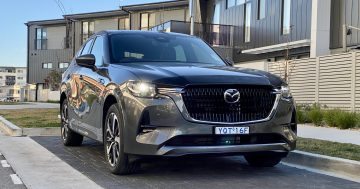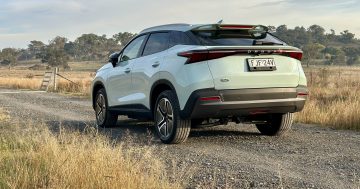Trent Hamm* says planning and patience are key to making the most of your hard-earned cash when shopping for life’s essentials.
 One of the most common types of questions I get from readers is how exactly they should shop for something.
One of the most common types of questions I get from readers is how exactly they should shop for something.
In this article, I’m covering how I shop for anything less expensive than a new car.
Here’s how I shop for…
Food:
When I buy food, I start with a meal plan for the week that basically lists everything I expect our family to eat for each meal during the week, as well as a few snack items.
I usually base this list on what’s on sale in the supermarket catalogue, with an eye toward our family calendar for the week.
From that, I make a grocery list and follow it at the shop.
When I’m actually shopping for food items, I usually buy store brand versions if they’re available.
If it’s a nonperishable item that can sit in the cupboard for a long time, I buy whichever version is the cheapest per serving, which is usually the large version.
I shop at a discount grocery store, which might not have all of the nice departments of other stores and might be a little crowded in the aisles at times, but the prices are great.
Household supplies:
I usually add these to my grocery list as needed.
When I’m buying them, I typically buy store brand versions in whichever package offers the most uses per dollar.
If there’s a sale, I’ll usually stock up and buy several of that item.
Insurance:
Once a year, I shop around for most of our insurance policies, particularly auto insurance and home insurance.
If my current insurer has been fine, I won’t switch unless there’s a significant discount elsewhere.
If I don’t like my current insurer, they go on something of a “black list” (meaning I won’t include them in comparisons any more) and I chase the lowest price.
Electronics:
I research electronic purchases extensively and then shop around online and off, usually checking prices frequently.
I usually bookmark the items I’m interested in at several retailers and check them daily until I either hit a sale price or it migrates toward more of a necessity, in which case I buy the lowest priced version.
I generally don’t buy any electronics used.
Small appliances:
I start by looking at secondhand shops near expensive residential neighbourhoods.
I usually find what I’m looking for there when it comes to a small appliance.
If this doesn’t pan out, I use the same procedure I use with electronics, described earlier.
Large appliances:
I try to watch our large appliances carefully so that any major issues and upcoming replacements are known to me well in advance of the purchase being a necessity.
I’ll research these purchases in detail, usually trusting consumer reports above all.
Once I have a few models in mind, I start shopping around for prices and I watch all the local retailers each week for appliance sales.
I’ll look at the catalogues for every local store that sells appliances each week to see what’s on sale there and when one of those models pops up, I buy it.
Books:
I visit the library.
If I end up reading a book there and realising that I will actually want to reread it and refer to it in the future, I’ll put it on a list of books to look for at secondhand stores and book sales.
I will often add books that fall into that group on my Amazon wish list, as I have relatives who use that when buying holiday gifts.
DVDs/Blurays:
We borrow from the library or rent.
We rarely buy these any more; I think the only “new” ones that have come into our house in the last year have been gifts.
Mobile phone
In our area, there are really only two companies that offer consistently decent service, so I frequently price check the two of them.
I’m very willing to jump companies whenever we don’t have an agreement signed with either one of them.
A mobile phone with a service provider that isn’t very good in your area isn’t worth anything, so I don’t compare them and won’t do so until I hear lots of reports of their service improving in our area.
Travel
Since we’re a family of five, unless it’s logistically impossible to do so, we drive to our destinations.
Many of our family vacations are spent at national parks, so we’ll often just load up the vehicle with camping materials and camp at our destination.
We very rarely fly.
When we need a hotel room, we stick with Hotels.com in order to maximise their rewards program, and we choose whatever the least expensive hotel in the area is that has at least a 4.2 rating on Hotels.com and on TripAdvisor (with more than a handful of ratings).
I don’t sweat a few bad reviews, but a cavalcade of them is a problem.
Everything else
Most of my other purchases follow a cycle of identifying a need, figuring out whether it really is a need, doing research, identifying a few good options, and then price watching those options until I find a sale or some other kind of promotion.
I find that patience is the best virtue for almost everything you buy, as most things aren’t really needs.
The single most powerful tactic for buying anything is simply asking yourself if you really need this right now.
If you can’t answer that with a strong yes, you’re almost always better off waiting and shopping around and keeping your eye out for a sale.
This applies to virtually everything you might spend your hard-earned money on.
Good luck!
* Trent Hamm is founder and author of The Simple Dollar. He tweets at @thesimpledollar and @trenttsd.
This article first appeared at www.thesimpledollar.com.











